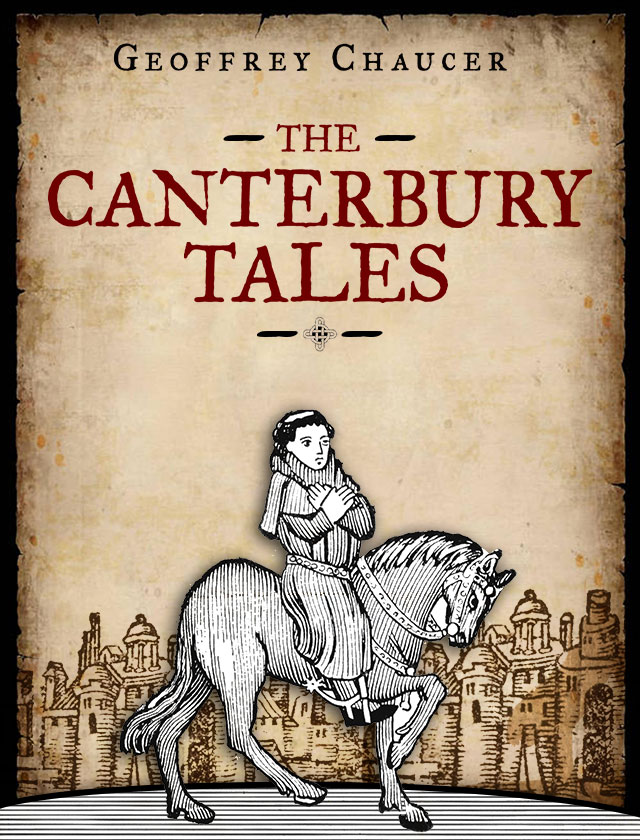The Canterbury Tales
by Geoffrey Chaucer
Introduction
Geoffrey Chaucer was an English poet who lived and wrote in the fourteenth century. There is not a lot of personal biographical information about Chaucer available, but enough is known about his business dealings and professional life to provide some background on him. Chaucer was born sometime in the early 1340 and died on October 25, 1400. He was the only son in his family. Chaucer was sent to become a page, which helped him transition out of the merchant class. He began as a page to the Countess of Ulster, and then began to serve her husband, Prince Lionel, who was the son of King Edward III. Chaucer went on to service in the Hundred Years War. He was a soldier in the war, but he also had the opportunity to act as a diplomat. Chaucer was apparently proficient in his service to kings Richard II and Henry IV, as there is documentation that he continued to be promoted and received several significant bonuses. Eventually, he became the Controller of the Customs of Hides, Skins and Wools in the port of London. After 12 years as Controller, Chaucer left London and went to Kent, where he worked as justice of the peace. He was not well compensated for his work as justice of the peace, but another royal appointment, this time to the position of Clerk of the Works, provided him with the financial security he had been lacking as justice of the peace. Eventually he retired from all paid positions sometime in the early 1390s, when he would have been in his late 40s to early 50s. He had apparently begun The Canterbury Tales prior to his retirement, and spent much of his retirement working on the poems.
Chaucer’s interest in poetry predated his retirement, and by the time he had retired, he had already authored several acclaimed poems. However, Chaucer was not interested in simply being a poet; instead, he wanted to change English poetry in a way that made it more common and accessible to everyone. At that time, French was the official language of the English court and Latin was the official language of religion; therefore, most poetry was written in one of those...
Sign up to continue reading Introduction >